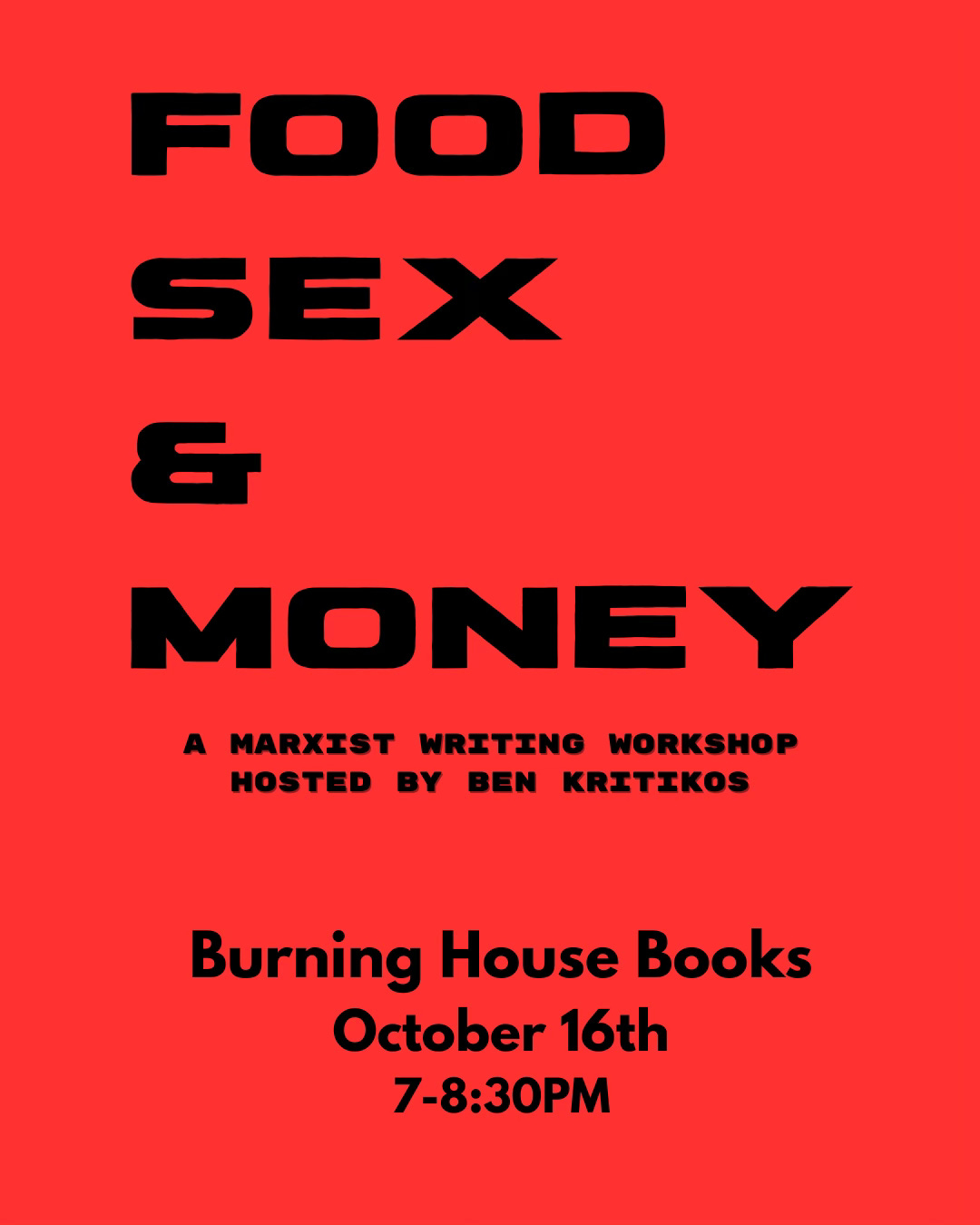Food, Sex and Money
A Marxist writing workshop
On Thursday, October 16th, I’ll be hosting Food, Sex & Money: A Marxist Writing Workshop at Burning House Books. We’ll be exploring how Marxism can inform and enrich different writing practices—from poetry to polemics, from criticism to comics to songs and novels—through struggle with the real, concrete world in all its messy complexity.
If you’d like attend, you can book a ticket here. Tickets are £15 but I’m offering a free place for anyone who needs it, so don’t be shy and do get in touch.
After the listening event I hosted at the shop for Govanhill International Festival, where we listened to Charles Mingus’s The Black Saint and the Sinner Lady followed by an open discussion, I was encouraged by people’s engagement with the question of what it means to be from somewhere, the porosity of nationality and attendees’ ability give full attention to a challenging piece of art for 39 uninterrupted minutes.
That said, Scotland has a unique peculiarity. Many people here who would consider themselves on “the left” seem to believe some fantastical things about Scotland’s political and economic orientation. The beleaguered drive for national self-determination in the perennial campaigns for independence give those on the “Yes” side what I would consider a false impression that Scotland is much more “progressive” than it really is. In other words, it’s better than England here, sure—but that’s an extremely low bar. Being slightly north of hell does not put you in the same hemisphere as heaven.
The listening event gave me a lot to think about in terms of telling the story of American power and who we mean when we say “American”; of fighting MAGA on new terms freed from the constraints of liberalism, since it is precisely this liberalism that I found constraining some of the attendees’ thinking about what freedom and democracy actually mean. It’ll be a big job putting across an argument without first challenging some fundamental assumptions about the world we live in.
This is exactly what we can undertake together at the writing group. I believe that the power of storytelling, in whatever cultural form it takes, is a vital weapon in the struggle against the increasingly naked aggression of capital, from Gaza to Glasgow and around the globe. Marxism can help make this chaotic world legible. It can’t tell the whole story for us, of course, because the power of a story comes from the humanity of the person telling it. As a storyteller, you reveal something about yourself and this revelation illuminates the world around you, letting others see it in a new light, granting us renewed vision, the power to imagine the world (or some corner of it) more deeply or totally differently.
The MAGA story is powerful because it simplifies what is actually extraordinarily complicated, obscuring more of the world than it reveals. Liberalism in all its impotence, having now ceded the world to its fascist heirs, has hitherto only quibbled about the moral of that story—the point, as Marx wrote 180 years ago, is to change it.

